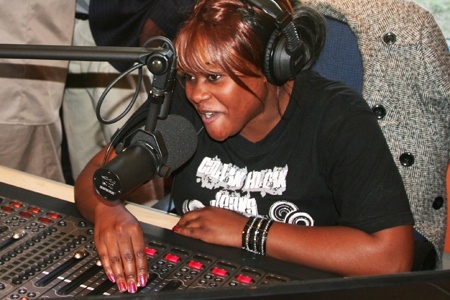
Local radio has gone through some cosmic transitions over the past 32 years.
REPORT BY SILENCE CHARUMBIRA
From what can be referred to as the first generation of Zimbabwe’s radio presenters and DJs like Busi Chindove, John Matinde, Hilton Mambo and Alice Chavhunduka, among others, to the new school — brought in this year with the opening of two new stations — changes have swept across the airwaves.
It has often been argued that radio presentations, back in the day, were perfect. Most members from the older generations will always cherish the good old days, while in most instances they rubbish the new crop of presenters.
StandardLife&Style spoke to DJs from various eras to have an insight into the changes in style and presentation on radio.
We got hold of Chindove, who is now Zimplats head of corporate affairs and she had this to say: “Obviously that [her job as presenter] was a different time of my life. I moved on ages ago.
“I am sure that they are all doing their best and are popular with the audiences. However, our approach was more structured and research-based.
“We also had the great privilege of extensive training, both at home and abroad. At a personal level, I attended training in Kenya, Germany, and the United Kingdom and also visited radio and television stations in other countries as part of that training process.”
- Chamisa under fire over US$120K donation
- Mavhunga puts DeMbare into Chibuku quarterfinals
- Pension funds bet on Cabora Bassa oilfields
- Councils defy govt fire tender directive
Keep Reading
She emphasised that training was important in ensuring quality presentations.
“I believe that for us, including all the colleagues that I had the pleasure of working with, the output reflected a solid training base.
“I cannot comment too much beyond that because I do not have much detail on what is taking place there [at the new stations] in terms of development.”
Hosea Singende, who probably falls in the category of the second generation of presenters along with the likes of Eric Knight, John “Mzala” Phiri, Ezra Chisa Sibanda, Tichafa “Tich Mataz” Matambanadzo, Munyaradzi Mlimo aka DJ Munya and many others, said radio had improved, but there was need for more training.
“Radio today has a tendency of throwing young presenters at the deep end. When we joined radio, the trend was that you would spend three good months observing and being trained,” Singende said.
“What is required is that the old guys should come back and train the youngsters.
“Radio is all about on-the-job training and we need to invest more resources and time.”
He said the advent of technological advancements has left a lot to be desired, as the younger generation’s research is restricted to the internet.
“Information is at our finger tips, but presentation has got to be intelligent, original and appealing. It has to be cultured and show brain power other than the now emerging obnoxious ways. The other thing is that back in the day, we used to walk into the studio with scripts, which is evidence of preparedness.”
Standards on the decline: hove One of the new presenters at Star FM, Jabulani Christopher Hove aka DJ Boss, conceded that radio standards had fallen despite the outward development fostered by the opening of new stations.
“Of course in terms of research, there is a lot that we need to do,” he said.
“We rely too much on the internet and you rarely see people visiting the national archives, probably because the systems are not digitalised, but the point remains, that we are not doing enough.”
He urged his contemporaries not to take information from the internet as the gospel truth.











